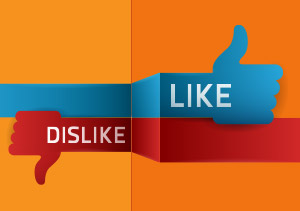The good and bad of social media use
By: DOLAN MEDIA NEWSWIRES//March 31, 2014//
By Scott Malouf
Dolan Media Newswires
 Social media is both a tool and a risk for businesses.
Social media is both a tool and a risk for businesses.
Marketing, recruiting talent and researching public opinion are obvious uses, but tweets, videos and posts can easily tarnish a hard-won reputation or leak confidential information.
Dell embraces social media. Its two-page Global Social Media Policy has attracted wide-spread plaudits for addressing business risks, yet enabling employees to fully engage with social media.
Ryan Garcia, Dell’s in-house attorney for social media, agreed to discuss with attorney Scott Malouf his views on the benefits and legal challenges for businesses using social media and how attorneys can engage with social media.
Scott Malouf: You are a social media lawyer for Dell. What does that mean?
Ryan Garcia: One of my main clients within Dell is the Global Social Media and Communities Team. I try to keep them aware of some of the legal issues [such as] marketing restrictions and generally make them aware of some of the emerging legal issues in this field because it is still so new and we’re seeing a lot of interesting overlaps with either existing regulations and laws or areas where we didn’t have regulations and laws.
Malouf: You’ve defined social media as “tools and services that facilitate conversations over the Internet.” Why use such a broad definition?
Garcia: It’s not just me; that’s generally how social media practitioners are describing it. And it’s really trying to come up with the distinction between social media versus a social network. Most people think the terms are interchangeable and really they’re not. The social networks are the broad, giant platforms that we all know about: Facebook, Twitter, Foursquare.
But social media is something bigger than that. It’s just that concept of being able to use the technology to have that conversation with people. It’s a more useful way of talking about the technology because this notion of having conversations across technology platforms is really where we see a lot of these interesting legal issues pop up. The same issues that would come up in a Facebook conversation would also come up perhaps in a YouTube comment conversation or in comments on a blog.
Malouf: Do you find that the legal community accepts the idea of applying key concepts and definitions across multiple platforms?
Garcia: I think people are getting more comfortable with it because they’ve become more comfortable with social media over the years. When I first started talking to some groups about social media legal issues two or three years ago, if I were in a room of attorneys I would ask ‘How many of you are on social media?’ Maybe half of them would raise their hand. Now, if I speak, I ask the reverse ‘How many of you think you’re not?’ No one has raised their hand in almost a year.
It is fascinating how we’re trying to come up with ways of accessing or using the information. Deep down we realize we’ve got to address it somehow, but we’re just not sure exactly how and haven’t come up with the streamlined way of doing it.
Malouf: Looking at what you said about attorneys acknowledging that social media has a personal impact on them, would you say the same is true for judges, since they live in a more constrained world?
Garcia: As conservative as attorneys may be in adopting new technologies, generally speaking, judges tend to be even more so in terms of adopting new technologies. There’s a difficult line to be drawn because judges are always judges. They are always representing the bench, so I think they do have a slightly different standard and I wouldn’t be surprised if, because of that, you do have a much lower adoption rate for platforms.
Malouf: The Dell Social Media Policy is pretty short. It focuses more on judgment than on playing out particular situations and how they should be handled. As an attorney, does that brevity make you nervous? Do you ever want to suggest ‘Let’s add a few more clauses’?
Garcia: [Laughs] No, not in this case. That’s because of two things. The first is, we wrote that policy to be that short. We’ve seen some of the longer social media policies. While they’re very detailed and they cover a lot of things, we know that the chance of an employee reading it and remembering it and being able to use it day-to-day is roughly zero percent. So we focused the other way. We wanted to cover some of the guidelines that we wanted people to keep in mind, the most important pieces of information, and put in a document that we would hope people could read, understand and remember. So that’s why we went for brevity.
The second reason, and this is something that I’m just lucky enough to be a part of, is that Dell has such a fantastic social media training program that the policy is almost there as kind of a reminder. [For example] Certified Social Media Professionals go through a minimum of eight hours of classwork on social media. I’ve worked with the training team so that we’ve got legal content in all the different classes. That extensive training program, coupled with the social media policy, in my mind, really has empowered our employees to be doing the right thing.
Scott Malouf is an attorney who helps other attorneys use social media, text and Web-based evidence.
Legal News
- Wisconsin joins Feds, dozens of states to hold airlines accountable for bad behavior
- Trump ahead of Biden in new Marquette poll
- Bankruptcy court approves Milwaukee Marriott Downtown ‘business as usual’ motion
- New Crime Gun Intelligence Center to launch in Chicago
- Arrest warrant issued for Minocqua Brewing owner who filed Lawsuit against Town of Minocqua
- Wisconsin Supreme Court justices question how much power Legislature should have
- Milwaukee’s Common Council now has the most African Americans, women and openly LGBTQ members ever
- Office of School Safety Provides Behavioral and Threat Assessment Management Training Ahead of 25th Anniversary of Columbine Shooting
- Wisconsin Supreme Court to hear arguments in Democratic governor’s suit against GOP-led Legislature
- Lawsuit asks Wisconsin Supreme Court to strike down governor’s 400-year veto
- Wisconsin man pleads not guilty to neglect in disappearance of boy
- ACS Selects University of Wisconsin Law School’s Miriam Seifter for 2024 Ruth Bader Ginsburg Scholar Award
WLJ People
- Power 30 Personal Injury Attorneys – Russell Nicolet
- Power 30 Personal Injury Attorneys – Benjamin Nicolet
- Power 30 Personal Injury Attorneys – Dustin T. Woehl
- Power 30 Personal Injury Attorneys – Katherine Metzger
- Power 30 Personal Injury Attorneys – Joseph Ryan
- Power 30 Personal Injury Attorneys – James M. Ryan
- Power 30 Personal Injury Attorneys – Dana Wachs
- Power 30 Personal Injury Attorneys – Mark L. Thomsen
- Power 30 Personal Injury Attorneys – Matthew Lein
- Power 30 Personal Injury Attorneys – Jeffrey A. Pitman
- Power 30 Personal Injury Attorneys – William Pemberton
- Power 30 Personal Injury Attorneys – Howard S. Sicula











